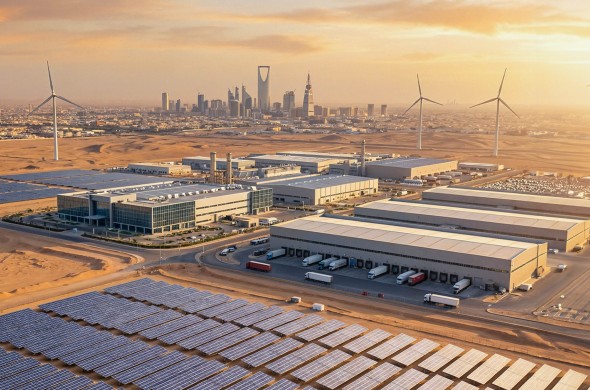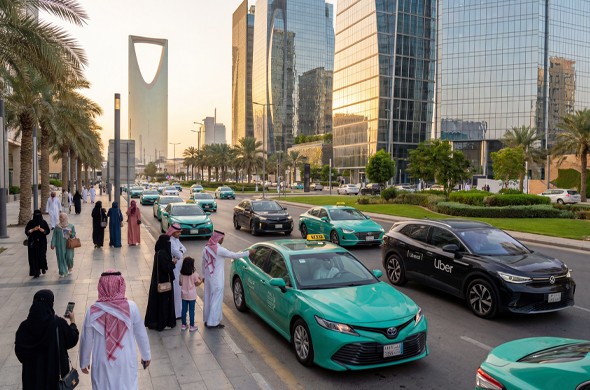COP28, the 28th Conference of the Parties to the United Nations Framework Convention on Climate Change (UNFCCC), is a significant global event dedicated to addressing climate change.
Hosted in Dubai, the 12-day conference brought together leaders, policymakers, scientists, and activists from around the world to discuss and formulate strategies for combating climate change. As a crucial platform for climate action, COP28 plays an important role in the global effort to mitigate the impacts of climate change and collaborate for a more sustainable future.
As one of the leading global consultancy companies in the Middle Eastern region, we’ve highlighted the key themes and talking points for COP28.
Key Themes and Agendas
Over 70,000 world leaders, government officials, and environmentalists gathered to discuss the following key points, all pivoting around the central theme of “Global Stocktake,” the first official report card for progress.
Climate Mitigation
With a pressing need to limit global warming to 1.5°C above pre-industrial levels, delegates focused on enhancing and accelerating efforts to reduce greenhouse gas emissions. Efforts include setting more ambitious emission reduction targets, implementing clean energy transitions, promoting sustainable land use, and fostering international cooperation to ensure a sustainable future for our planet.
Adaptation
COP28 considered the Sharm El Sheikh Adaptation Agenda while working towards adaptive and resilient development. Delegates will address strategies for vulnerable communities and ecosystems to combat the effects of a changing climate. For example, innovative adaptation measures, enhancing climate finance for adaptation projects and ensuring equitable access to resources and technology. These robust adaptation strategies are necessary to safeguard lives, livelihoods, and the natural environment in the face of escalating climate challenges.
Financing
The conference emphasized mobilizing climate finance at scale to support mitigation and adaptation efforts, especially in developing countries. Delegates focused on securing adequate funding, exploring innovative financial mechanisms, and ensuring the transparent and equitable distribution of resources.
Technology transfer
There is a need to facilitate the transfer of clean and sustainable technologies to countries that require them for climate mitigation and adaptation purposes, particularly in the developing world. COP28 emphasizes mechanisms to bridge technological gaps, promote research and development, and enhance international cooperation in sharing and deploying climate-friendly innovations.
Global initiatives and commitments
Unfortunately, a preliminary report summarizing the findings revealed that global efforts need to catch up to its Paris Agreement goals. However, a few countries and international organizations are achieving progress in certain areas, such as the following:
- Net-zero emission targets: Several countries, including the United States and China, have pledged to achieve net-zero greenhouse gas emissions by 2050 and 2060, respectively.
- Renewable energy expansion: Germany, India, and Brazil have announced plans to invest in scaling renewable energy sources. For example, the German cabinet has approved a €58 billion green investment plan for 2024.
- Transitioning to sustainable energy: Dubai and Saudi Arabia are making significant strides in transitioning to sustainable energy sources. For example, Dubai has launched the Dubai Clean Energy Strategy, which aims to generate 75% of its energy from clean sources by 2050.
- Reforestation and afforestation: Various initiatives, such as the African Forest Landscape Reforestation Initiative, work to restore and expand forests to absorb carbon dioxide and improve biodiversity.
- Climate finance: International organizations, such as the Green Climate Fund, as well as various countries, are increasing their financial contributions to support climate adaptation and mitigation efforts in developing nations.
- Electric vehicle adoption: nternal combustion engine vehicles are being phased out in certain countries, such as Norway and the Netherlands, while electric vehicles are being promoted to reduce transport-related emissions.
The Role of the UAE
The UAE's active participation in COP28 and its commitment to renewable energy and sustainability initiatives reflect its dedication to the global fight against climate change while simultaneously ensuring a sustainable and resilient future for the country.
The UAE’s involvement goes beyond hosting COP28 to include other initiatives that address climate change. For example, the UAE announced its goal of achieving net-zero emissions by 2050, aligning with the global effort to limit global warming to 1.5°C.
The region has also made substantial investments in renewable energy projects, such as the Mohammed bin Rashid Al Maktoum Solar Park, one of the largest solar parks in the world, with plans to expand its capacity to 5 GW by 2030.
Prioritizing sustainable infrastructure, cities like Dubai and Abu Dhabi have incorporated green building standards and eco-friendly infrastructure designs. The UAE aims to make all new buildings in Dubai sustainable by 2030 with initiatives such as the Dubai Green Building Regulations and Specifications.
Saudi Arabia's Climate Initiatives
Saudi Arabia actively participated in COP28, focusing on reducing greenhouse gas emissions and diversifying the economy.
Saudi Arabia's Vision 2030 outlines a strategy for economic diversification, reducing the country's dependency on oil revenue. By developing new industries and sectors, including renewable energy and tourism, the plan aims to create a more sustainable and resilient economy.
The Kingdom launched notable renewable energy projects, including the Sakaka Solar Project, which has a capacity of 1.2 GW. Saudi Arabia also aims to develop 70% of its renewable energy capacity from wind and solar sources as part of its Vision 2030 plan to diversify its energy mix. NEOM is another example, a futuristic city and economic zone project that aims to be powered entirely by renewable energy.
Saudi Arabia is also investing in green hydrogen production, which has the potential to decarbonize various sectors, including industry and transportation. The country is leveraging its vast solar resources for green hydrogen production through electrolysis.
Green Finance and Investments
During COP28, several financial commitments and investments were announced to support climate-friendly projects, both globally and within the UAE and Saudi Arabia.
Internationally, countries pledged increased climate finance to assist developing nations in their climate mitigation and adaptation efforts.
Within the UAE, there was a focus on mobilizing funds for renewable energy projects and sustainable infrastructure, aligning with the country's commitment to clean energy transition. For example, the UAE pledged $30 billion to a new fund aiming to invest in climate-friendly projects across the world.
In Saudi Arabia, investments in renewable energy and green hydrogen projects were emphasized, signaling the nation's dedication to diversifying its economy and reducing carbon emissions.
Technology Transfer and Innovation
Cutting-edge solar technologies, energy storage solutions, and grid management systems were among the highlights of clean energy and innovations at COP28, revealing the potential to significantly reduce carbon emissions, increase energy efficiency, and drive the adoption of renewable energy sources in the Middle East.
With the region's abundant sunlight and growing energy demand, the showcased technologies have the potential to not only accelerate the UAE's and the broader Middle East's transition to clean energy but also position the region as a global leader in sustainable energy production and consumption.
Delegates presented on various topics, such as IBM’s Sustainability Accelerator, using data and AI to help communities most vulnerable to climate change. Other sessions explored how technology can close the gap between the global north and south, revealing how a Global Technology Hub can facilitate climate action.
Decisions and Agreements
It has already been determined that countries are not reaching their climate goals as outlined in the Paris Agreement. However, COP28 has provided an opportunity to overcome this delay by discussing emissions reduction targets and increasing climate finance.
The conference emphasized the importance of investing in renewable energy projects, aligning with the Gulf region’s growing focus on clean energy projects. Agreements were also reached to facilitate the transfer of clean energy technologies, which can accelerate the adoption of renewable energy sources in the Arabian Gulf region.
However, there are a few areas where further discussions are needed to find common ground. In particular, the urgent call for a fossil fuel “phaseout” has been highly debated and controversial in sentiment.
Local and Regional Implications
The outcomes of COP28 will likely drive the UAE and Saudi Arabia to adopt more ambitious climate policies, accelerate their transition to cleaner and more sustainable energy sources, and invest in resilience measures to mitigate the impacts of climate change — but it works in their favor.
Given the region's vulnerability to climate impacts like rising temperatures and water scarcity, the UAE and Saudi Arabia may bolster their climate adaptation strategies, including investments in water conservation, desertification prevention, and resilient infrastructure.
In particular, the region is likely to enhance renewable energy commitments, improve energy efficiency measures, invest in green hydrogen development, and emphasize sustainable urban planning, much of which is already being done.
There is an additional possibility that the UAE and Saudi Arabia may explore carbon pricing mechanisms, such as carbon taxes or emissions trading systems, to incentivize emissions reduction.
Future Prospects
COP28 has the potential to catalyze long-term transformative effects on global climate action and sustainability efforts, driving nations to set more ambitious goals, invest in renewable energy, adopt cleaner technologies, and enhance climate resilience.
For the Arabian Peninsula, COP28 may serve as a pivotal moment, inspiring the UAE and Saudi Arabia to accelerate their transition to sustainable, low-carbon economies, setting a positive example for the region.
As the world navigates the complex challenges of climate change, the outcomes of COP28 underscore the imperative of international cooperation and ambitious commitments to secure a more sustainable and resilient future for all. At Ollen Group, we offer consultancy services to propel businesses in agriculture toward sustainable growth.
Read our latest insights, ideas, and perspectives that explore the trends shaping the future of business and society. Our consultancy services go hand-in-hand with these insights,confirming our position as industry leaders. Get in touch to find out more about our consulting services and industry expertise.



